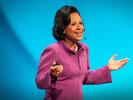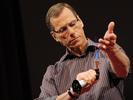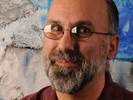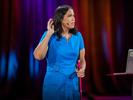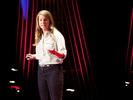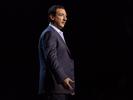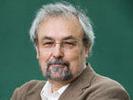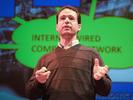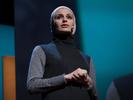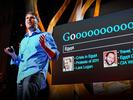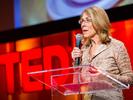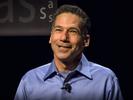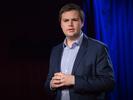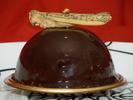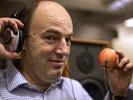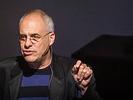NPR/TED Staff appears in the following:
When Does Medicine Leave Women Behind?
Friday, February 10, 2017
Men and women experience some diseases differently. Doctor Paula Johnson says this is alarming — because most treatments were designed for men, not women.
Is Pain A Symptom Or A Disease?
Friday, February 10, 2017
Doctors are often puzzled when pain lives on after the underlying cause goes away. Medical professor Elliot Krane explains why it can makes sense to think of chronic pain as a disease.
Why Is It Important To Be Touched?
Thursday, January 19, 2017
Neuroscientist David Linden thinks that of the five senses, touch is the most overlooked, and perhaps the most important for promoting psychological health.
How Can We Hear The Stars?
Thursday, January 19, 2017
When astronomer Wanda Diaz Merced lost her eyesight, she thought she'd never succeed in astronomy. Eventually, she discovered a way to hear the stars.
Are There More Than Five Basic Tastes?
Thursday, January 19, 2017
Scientists have long believed we have just five tastes - salty, sweet, bitter, sour and umami (or savory). Geneticist Nicole Garneau argues we might be able to taste a sixth — fat.
How Can Going Blind Give You Vision?
Thursday, January 19, 2017
Isaac Lidsky lost his sight by age 25. Now, he says, losing his eyesight was a blessing — because it taught him that he is in control of his own reality.
How Do Pheromones Really Work?
Thursday, January 19, 2017
Pheromones are mysterious compounds that can make a mammal smell more sexy--but that's not true for humans. Zoologist Tristram Wyatt says human pheremones are hard to find.
How Do Trees Collaborate?
Friday, January 13, 2017
Ecologist Suzanne Simard shares how she discovered that trees use underground fungi networks to communicate and share resources, uprooting the idea that nature constantly competes for survival.
Is There A Limit To How Many Friends We Can Have?
Friday, January 13, 2017
Anthropologist Robin Dunbar believes the evolutionary structure of social networks limits us to 150 meaningful relationships at a time — even with the rise of social media.
What Happens When Hackers Hijack Our Smart Devices?
Friday, January 13, 2017
Computer scientist Avi Rubin says all our smart devices — cars, phones, even fitness trackers — can be hacked. He warns that our network of connected technology puts us at risk for cyberattacks.
Can We Improve Our Transportation Network Using...Biology?
Friday, January 13, 2017
Wanis Kabbaj wants traffic to flow smoothly and efficiently, like the blood in our veins. He says driverless cars may be the solution to today's highway gridlock.
After A Horrible Hate Crime, How Do You Not Hate Back?
Friday, December 16, 2016
Suzanne Barakat speaks about the challenge of reconciling shock, anger and acceptance after her brother and sisters-in-law were murdered in an anti-Muslim hate crime.
How Can We Look Past (or See Beyond) Our Digital Filters?
Friday, December 16, 2016
Eli Pariser explains why being trapped in "filter bubbles" is bad for us and bad for democracy. He says we don't get exposed to information that could challenge or broaden our worldview.
Should We Take "The Other" To Lunch?
Friday, December 16, 2016
Elizabeth Lesser shares a simple way to begin meaningful dialogue: find someone from a totally different background — and spend a few hours with them over lunch.
How Do We Transform Conflict Into Cooperation?
Friday, December 16, 2016
Negotiator William Ury offers an elegant (but not easy) way to get two opposing sides to agree: the approach? Find the "third side."
Is It Possible To Bridge The Gap Between Rich and Poor?
Friday, December 16, 2016
J.D. Vance is a self-proclaimed member of the elite, but he grew up poor in the American Rust Belt. He details what the loss of the American Dream feels like.
Are Insects The Future Of Food?
Thursday, November 17, 2016
Entomologist Marcel Dicke wants us to reconsider our relationship with insects, promoting bugs as a tasty — and ecologically sound — alternative to meat in an increasingly hungry world.
What Defines The Perfect Meal?
Thursday, November 17, 2016
Professor Charles Spence studies what makes for a great eating experience. He says it's far more dependent on 'the everything else' that surrounds the meal, rather than the food itself.
How Has the American Diet Changed Over Time?
Thursday, November 17, 2016
Food writer Mark Bittman says long before Pop Tarts, Americans ate simple food that was grown closer to home. He says we need to get back to that time by eating locally, seasonally, and sustainably.
How Worried Should We Be About Sugar?
Thursday, November 17, 2016
Sugar is a major culprit in diseases such as obesity, diabetes and dementia—and because it's in almost everything we consume, Dr. Robert Lustig says it's time to get more proactive.
